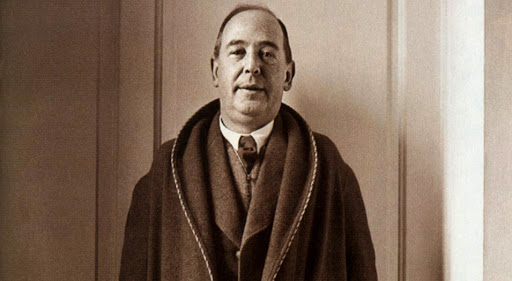A first rate scholar, author of a classic collection of children’s stories, imaginative writer of a first-rate science fiction trilogy, essayist, poet, Christian apologist and armchair theologian – this is the very portrait of C. S. Lewis, one of the great literary figures of the last century.
Born in Northern Ireland in 1898, Clive Staples Lewis – better known to his friends as “Jack” – was brought up in a nominally Protestant home. His brilliant intellect was recognized early in life, and after a private education he was awarded a scholarship at University College, Oxford. His career at Oxford was stunning, earning an outstanding three “firsts” in ancient literature, philosophy, and English. He went on to be an English professor at Magdalene College, Oxford.
Lewis turned away from the dutiful practice of religion when he was fifteen. Claiming to be an atheist, he became interested in the occult and Norse mythology. It would be another eighteen years before he finally accepted the claims of Christianity in 1931. It was his friend, J. R. R. Tolkien – the creator of the Lord of the RIngs fantasy – and the writings of G. K. Chesterton that brought Lewis first to believe in God, and then to accept the Christian faith.
Once he crossed the threshold into Christianity, Lewis’ imagination and writing skill took off. His Christian faith was infused into every word he wrote. His essays and articles defended and explained what he called “mere Christianity” – an essential Christian faith rooted firmly in historic Christian thought. His works of fiction radiated a strong, orthodox, beautiful, and inspiring version of Christianity, one which would change the lives of millions of readers over the years.
What are the foundations of C. S. Lewis’ thought and imagination? First of all, he described himself as a “thoroughgoing supernaturalist”; he turned away from the rational, materialistic explanations of reality and accepted as a basic premise the reality of the supernatural dimension. However, Lewis’ supernaturalism was not mere superstition and ephemeral sentimentality. Lewis did not think of the invisible world as less real than the material world, but more so.
Secondly, Lewis accepted the supernatural foundation of the Christian faith. He had no time for what he called the “watered down religion” of modernists. Religion was a supernatural transaction between man and God, not a mere collection of religious rules and social duties. It was that “watered down” dull and dutiful religion which had driven the young Lewis to atheism, and he wanted nothing to do with it. Instead, the supernatural world was surging in and through the Christian religion for the salvation of souls and the transformation of each individual.
A large, boisterous man, Lewis was never happier than when he was engaged in a vigorous intellectual debate, usually with a glass of English beer and his pipe by his side. Lewis’ enjoyment of debate frames the third quality that defines him: he was a happy warrior. Lewis realized that part of being a follower of Christ was to wade into battle. The truth was worth fighting for, and Lewis was ready and able to debate for the truth of the Christian faith with a stunning combination of sharp logic, vast knowledge of Western literature and culture, a vivid imagination, and a capacity for hard work.
The biographies of Lewis portray him as having a self-confident, eccentric, and rumbustious personality. One writer said he looked like a “jolly red-faced butcher”. On the other side of this robust Christian exterior was a man wounded by the childhood loss of his mother and the loss of a best friend in the First World War. Students, friends, and acquaintances recall that he was unfailingly kind and generous. His letters show that he spent hours writing to a whole range of correspondents about the faith, and the challenges they were facing.
Happy in an unusual and controversial late marriage to Joy Davidman, Lewis’ fame grew throughout the 1950s until becoming world-renowned as a Christian apologist and writer. He died of complications from kidney failure on November 22, 1963 – the same afternoon John F. Kennedy was assassinated in Dallas.
Beneath all Lewis’ worldly fame was a humble Christian. During his final illness, Lewis confided to friends his worries that his stepsons and dependent brother would be left without financial means. He had given most of the money earned from royalties to the poor, and he was convinced that after his death his books would go out of print and his dependents would be left penniless.
Little did he know what a great legacy he would leave. Three of his Chronicles of Narnia have been turned into successful films; a stage play, then a feature film have been made about his life. He has influenced a whole generation of fantasy writers including J. K. Rowling and Daniel Handler, and the sales of his books continue to surge throughout the world. Readers unfamiliar with his work should start with his classics Mere Christianity, The Screwtape Lettersand his Chronicles of Narnia.
Rather than dying and being forgotten, Lewis’ life and legacy have become legendary in the realm of English literary history, even as his fame and influence continue to increase. As the children of Narnia would say, “Further up and further in!”
Fr. Dwight Longenecker is the parish priest of Our Lady of the Rosary Church in Greenville, South Carolina. Visit his blog, browse his books, and be in touch at dwightlongenecker.com.

